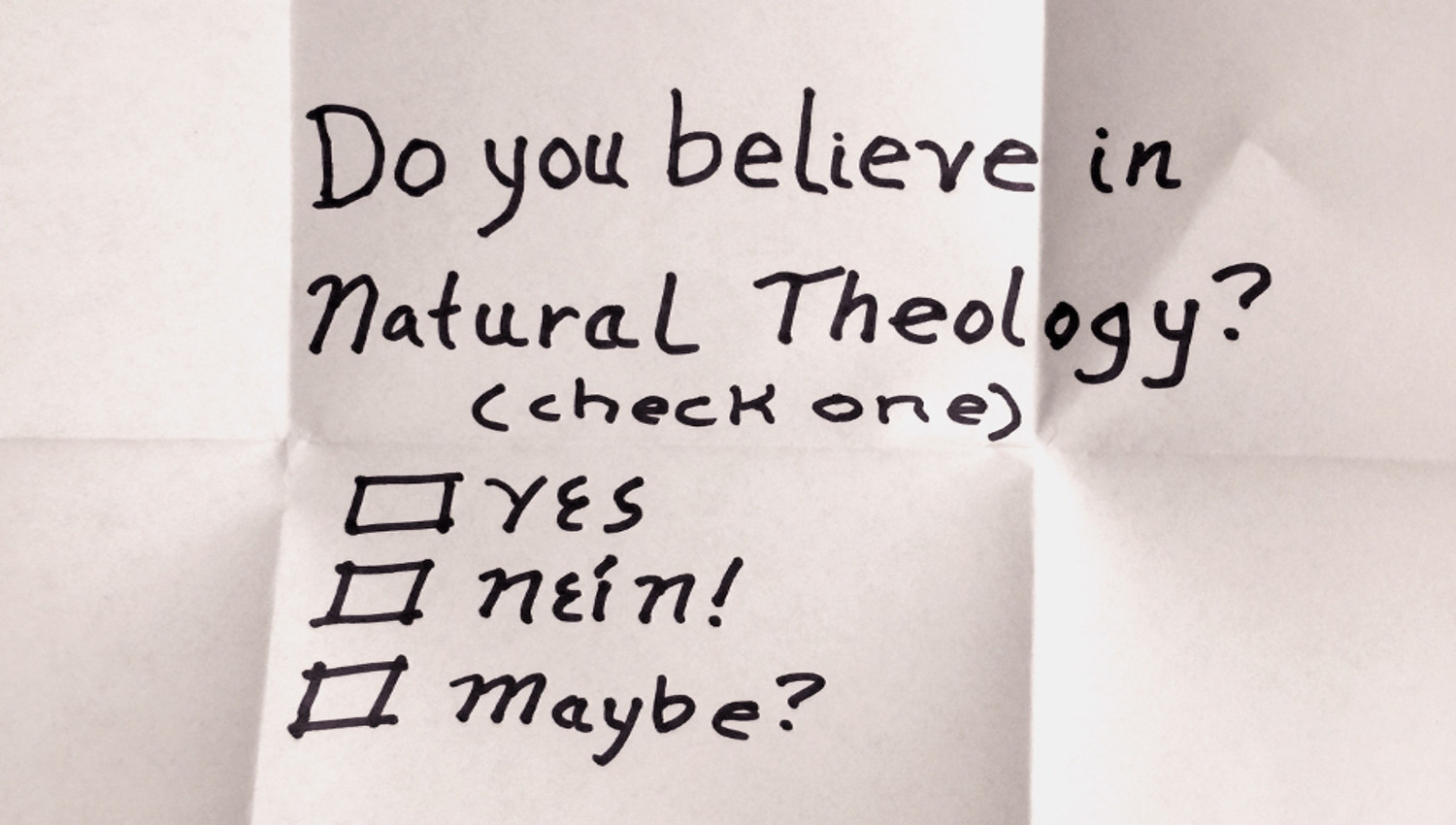 Is Karl Barth's No! to natural revelation the final word? Is God never revealed through nature? (i.e. natural revelation). May we learn nothing about God from studying nature? (i.e. natural theology). For a time, Karl Barth's Nein! had closed the door to natural theology, while the Nazis were in power, and maybe this was necessary at that time due to the war. However after the Nazis were defeated, Karl Barth reconsidered his 'no' to Emil Brunner and developed his own natural theology that Barth called "Secular Parables of the Truth" that re-opened the door to Natural Theology.
Is Karl Barth's No! to natural revelation the final word? Is God never revealed through nature? (i.e. natural revelation). May we learn nothing about God from studying nature? (i.e. natural theology). For a time, Karl Barth's Nein! had closed the door to natural theology, while the Nazis were in power, and maybe this was necessary at that time due to the war. However after the Nazis were defeated, Karl Barth reconsidered his 'no' to Emil Brunner and developed his own natural theology that Barth called "Secular Parables of the Truth" that re-opened the door to Natural Theology.
Jürgen Moltmann developed upon Barth's secular parables, and said yes, we must have a natural theology, because of the impending ecological crisis that is threatening humanity and the whole world. Moltmann's conversion began when he encountered a blossoming cherry tree while he was a prisoner of war, and has written books on the ethics of hope and the rights of the Earth, so he has been excellent example of a new natural theology that does not espouse the errors of natural revelation that Barth equated with the anti-Christ (CD I/1). Moltmann is post-barthian, but believes we are forced to return to a new natural theology, because of the ecological crisis that threatens all life on earth. Moltmann says it's not enough to do theology detached from nature, because we are confront by an ecological crisis, and refusing to recognize the issue, is to perpetuate the problem. Moltmann invokes the example of Galileo:
Jürgen Moltmann wrote, "When Galileo wanted to show his opponents the Jupiter satellites, they refused to look through the telescope because they believed, as Bertolt Brecht put it, "that there was no truth to be found in nature but only in the comparison of texts'." [1]
In Moltmann's book, Science and Wisdom, he explains why he has embraced natural theology:
Jürgen Moltmann wrote, "For a long time, in the wake of Karl Barth's famous—or notorious—'no' to natural theology in 1934, any expectations of this kind were deeply suspect in German Protestant theology. It was the discovery of the ecological crisis of the environment, among living things other than ourselves and in nature as a whole, which for the first time provoked a new theology of nature, and called to life a new creation spirituality. It sounds somewhat presumptuous, and smacks of unasked-for interference, if in the light of this crisis theologians try to confront the scientists with a 'natural theology'. But what I have in mind is not so much a special theology; it is rather a general teaching of wisdom. And for that reason I have deliberately called this book 'Science and Wisdom'." [2]
Sources:
1. Moltmann, Jürgen, and Margaret Kohl. Science and Wisdom, SCM Press, 2003. p. 3
2. Ibid. preface.
Related: Earth, ecological crisis, Jürgen Moltmann, Karl Barth, Natural Revelation, Natural Theology, Science and Wisdom



Leave a comment